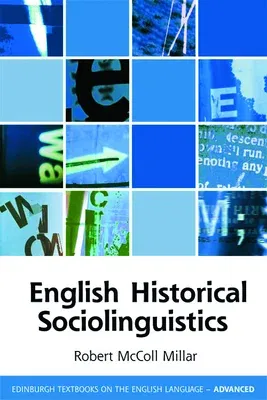Sociolinguistics provides a powerful instrument by which we can
interpret the contemporary and near-contemporary use of language in
relation to the society in which speakers live. Almost since the
beginning of the discipline, however, attempts have been made to
extrapolate backwards and interpret past linguistic change
sociolinguistically. Some of these findings have influenced the
discussion of the history of the English language as portrayed in the
many textbooks for undergraduate courses. A consistent application of
sociolinguistic theory and findings has rarely been attempted, however,
despite the specialist literature which demonstrates this connection at
specific points in the language's development.This textbook provides
students with a means by which a previously existing knowledge of a
linear, narrative, history of English can be deepened by a more profound
understanding of the sociolinguistic forces which initiate or encourage
language change. Uniquely, it discusses not only the central
variationist tendencies present in language change and their analysis
but also the macrosociolinguistic forces which act upon all speakers and
their language. Chapters investigate the political, cultural and
economic forces which affect a society's use of and views on language;
language contact, language standardisation and linguistic attrition are
also covered. Discussion is illustrated throughout by apposite examples
from the history of English. The volume enables students to develop a
deeper understanding of both sociolinguistics and historical
linguistics; it is also be useful as a primer for postgraduate study in
the subjects covered.

